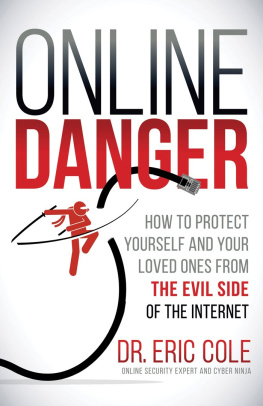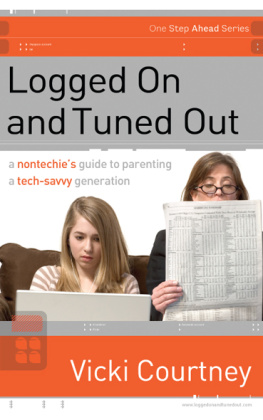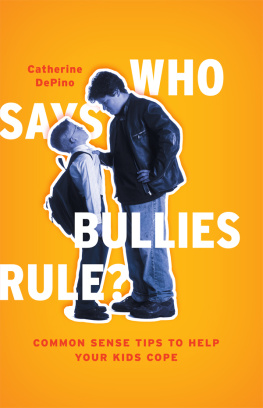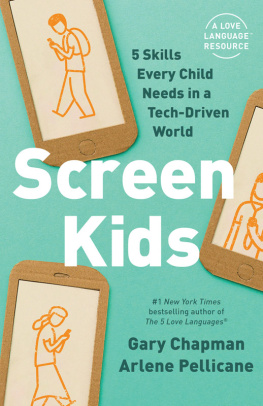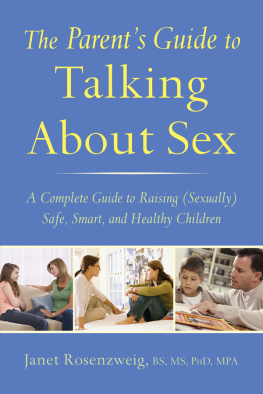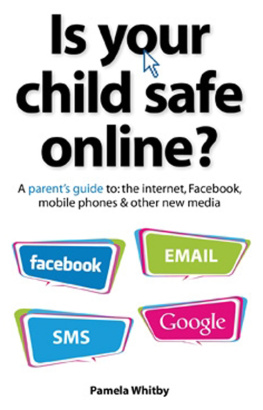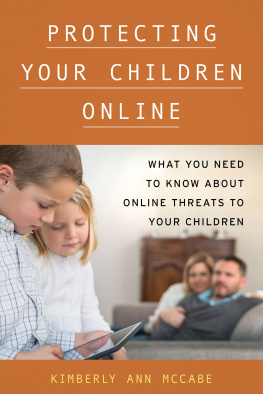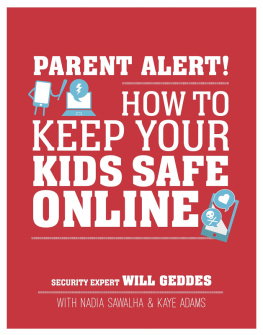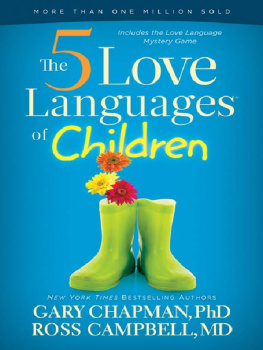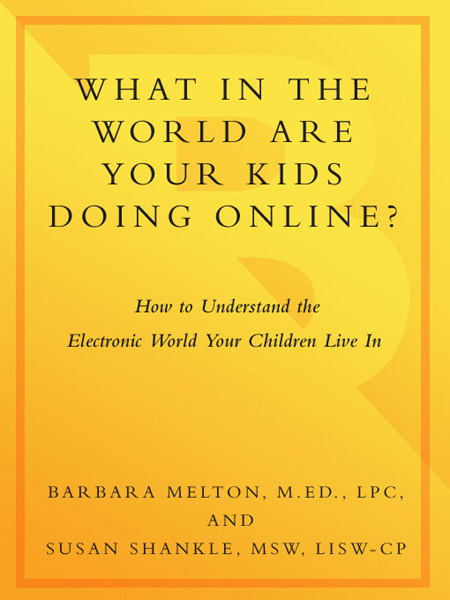
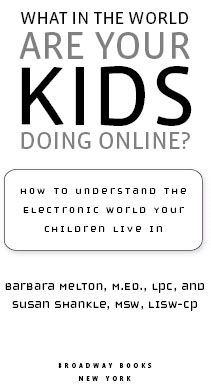
CONTENTS



TO BOB SULLIVAN, TECHNOLOGY CORRESPONDENT AT MSNBC
WITHOUT HIS VISION AND FORESIGHT,
THIS BOOK WOULD NOT EXIST.
AND TO THE MANY FINE PARENTS OUT THERE:
KEEP UP THE GOOD WORK!
INTRODUCTION

WELCOME TO CYBERWORLD
B ack in the 1960s, when Sue was ten years old, she found out how deceptive mass media could be. She heard on the radio an offer for some records that the company offered to send free. Excited about her prospective treasure trove, Sue ordered half a dozen of her favorite 45sonly to find out that it was the shipping that was free, not the records. The records had arrived COD and now Sue owed several dollars that she didnt have.
A few years later, when Barb was twelve, she found out how easily mass media could draw you into a potentially dangerous situation. She and a girlfriend called up a radio station when her folks werent home. Giggling, they told the DJ, Were two cute girls, and wed like to hear from some cute guys, so heres our phone number. The message went out over the air, and the phone started ringing off the hook. Luckily, no guys ever connected the phone number to an address, and none actually came to Barbs house. But the phone rang off and on for two weeks straight.
Both of these childish mishaps seem funny in retrospectand they certainly seem old-fashioned. If Sue were a kid making the same mistake today, she might have given out her folks credit card number to a phony Web site (We wont charge youfor ID purposes only), putting her family at risk for fraud and identity theft. If Barb had posted identifying information on the Internet, she might have been subject to weeks of online harassment and possibly even greater dangers. At least Barbs ringing phone drew her folks attentionwhat might have happened to a twelve-year-old with her own Internet account, afraid to confess her terrible blunder to her parents?
Well, actually, we know very well what might happen, because Sue recently counseled a twelve-year-old who used to frequent chat rooms also in hopes of meeting cute boys. The girlwell call her Aprilknew enough not to give out her contact information online, but she didnt realize that people could use the information shed given in her profile to locate her. April enjoyed anonymously pretending that she was a much older teenuntil one night when three guys showed up on her doorstep, looking for the sexually adventurous young woman they had met online.
Luckily, Aprils parents were home and could explain that their daughter was only twelvebut it was quite a shock to everyone concerned. The guys really werent interested in robbing the cradle; the parents had no idea their daughter was experimenting with an online sexual identityand April had never realized that anyone might take her sexual offers seriously. This good kid would never have put on makeup and her older sisters miniskirt and hung out at barsbut she thought it was okay to talk about doing those things online. In her mind, she was just having funshe didnt realize she was extending an invitation.
Whats our point? Kids will be kids, and in all eras, they do foolish and risky thingsits pretty much in their job description. Only now, in Cyberworld, little mistakes can have enormous consequencesconsequences you may not even know about until its too late. (Aprils parents, for example, were very glad they happened to be home that night!)
Almost by definition, youre going to be less comfortable in Cyberworld than your children are and less aware of its many possibilitiesand yet, in this electronic world that you never grew up in, your job is to keep your child safe. How do you do it?
By now, youve heard all about the perils of Internet predatorsand in Chapter 1, well tell you everything you need to know about protecting your child from them. But the threats to your childs health and well-being go far beyond those well-publicized dangers. For example, every minute your kid sits in front of the computer is a minute he or she is not moving, not breathing fresh air, not getting the benefits of full-spectrum sunlight. Figuring out how kids can have a healthy computer experience while still protecting their physical health can be quite a challenge.
And then there are the social, emotional, and developmental challenges. Cyberworld is a world of instant gratificationyou can watch your favorite TV show whenever you want and on your own terms, instead of waiting for it to be on and negotiating with other family members over a common TV set; you can do research when and how you feel like it instead of waiting for the library to open and following library rules; you can basically get what you want without having to go through other people. How do you teach your children that sometimes in life, you have to wait your turn and work things out when so much of Cyberworld contradicts that notion? How do you make it clear that children need to develop empathy and compassion when the electronic world allows them to meet and discard people at the drop of a hat? How can children learn to pay full attention or to use their own imaginations when Cyberworld offers to keep them fully entertained 24/7?
As counselors who have become nationally recognized experts in electronic parenting issues and whove worked with a wide range of kids, parents, and fellow professionals, we can assure you that the Internet offers your children a host of new challenges, dangers, and opportunities that you may never have suspected:
Cyber-bullying. E-mail, Web sites, cell-phone cameras, and Web cams have created new arenas for harassment that are becoming increasingly common. What if the schools Mean Girl takes cell-phone photos of your daughter undressing in gym class and then posts the pictures on her Web site or forwards them via e-mail to all her classmates? Suppose the school bully starts a rumor that your son is gay and encourages his friends to bombard him with harassing e-mails? Your own child might be involved in cyber-bullying simply by forwarding or receiving messages, or by visiting a classmates Web site.
Teenage Blogs. Youth culture has already created an alternate universe, giving your teenager the impression that every other kid in the world has a gorgeous body, unlimited spending money, and complete sexual freedom. A new layer of unreality comes from teen blogs that seem to portray the actual lives of ordinary young people but are often steeped in fantasy, distortion, and wish fulfillment. We tend to believe things that we read and, even more, things we can see for ourselves. How do you help your child develop a healthy skepticism that doesnt turn into an unhealthy cynicism?
Online Socializing. Children of all ages can be drawn into a whole alternate life on the Internet, communicating with friends or even dates whom theyve never met. Some children become overly isolated in what often turns into a vicious cycle: as kids become less comfortable in social situations, they grow ever more dependent on electronic relationships, and their secret life may come to seem more real than reality. Even for social children, it may be hard to develop genuine intimacy and empathy when you meet your friends on Web sites, hang out with your dates in chat rooms, communicate primarily by text messaging and e-mail, and generally spend more time with someone online than in person. How do children learn, in this virtual world, that their actions really do affect others?
Next page

